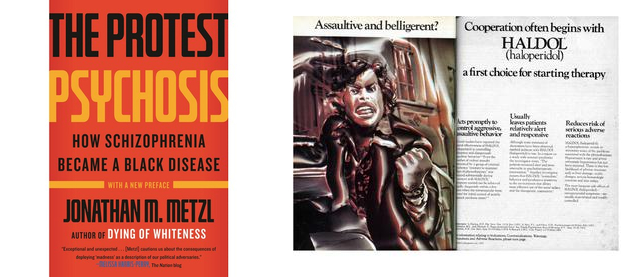Jonathan Metzl, a professor of Sociology and Medicine at Vanderbilt University, argues that the historical overdiagnosis of schizophrenia in Black men during the Civil Rights era was not just due to clinician bias but also influenced by larger political and social factors. This misdiagnosis was partly a response to the racial injustices and political unrest of the time, leading to schizophrenia being wrongly associated with violent behavior in Black men.
Despite efforts to address this bias through training in cultural competency and implicit bias, Black Americans continue to be overdiagnosed with schizophrenia.
Metzl emphasizes that to truly address the roots of racial biases in psychiatry, there needs to be an understanding of how societal structures and institutions influence the creation of disease categories and symptoms.
He writes that “… a key lesson of history is that the race-based overdiagnosis of schizophrenia in Black men was as much a consequence as it was a symptom of larger structural ills. In a broader sense, overdiagnosis ultimately resulted not solely from the attitudes or biases of clinicians, but from a series of larger political and social determinants.”
Metzl and his colleagues are working on a database to track the association between schizophrenia, race, and language used in psychiatric literature from 1949 to 1980. Their findings show a shift in language that correlates schizophrenia with aggression and hostility in articles explicitly mentioning race, reflecting broader societal associations.
This misdiagnosis led to coercive treatment practices and changed the function of psychiatric institutions. Metzl suggests that progress has been made in addressing clinician bias, but there’s a need for a structural competency framework in psychiatry. This framework would acknowledge the impact of larger structures and systems on mental health outcomes and treatment, moving beyond individual clinician bias to address systemic racism in the field. This approach would help build better structures to support health by connecting individual biases to systemic issues.
















To be…fair? I suppose…
Schizophrenia is still a label broad and vague enough to be used to justify drugging and or confining people with all sorts of so called so called symptoms. Schizophrenia is also useful when dealing with higher status people in certain situations such as providing a certain amount of leeway in society that would otherwise not be possible. I seem to recall Szasz writing about this…
How Schizophrenia is a social death sentence for lower status people but potentially useful to higher status people.
Report comment
Any society frequently employs various social mechanisms, such as diagnostic labeling or systemic controls, to regulate different groups based on their inherent strengths. This implies that the tools or strategies used against a person or group can be indicative of that group’s perceived “strength”. Therefore, when considering the over-diagnosis of African Americans, it is pertinent to ask: What underlying apprehensions might be driving the use of such diagnostic labels as a form of defense?
It is no different from clipping a bird’s wings to prevent her from flying, except that human ingenuity knows no bounds!
The paradox lies in the fact that the doer is indirectly communicating the strength of the done, without explicitly stating it.
Report comment
Lower higher…black white… man woman…binary nonbinary…trans cis…good bad…rich poor…stupid clever…religious atheist… narcissist empath…leader follower…right left…fat thin…mad sane…Division Division Division Division Division. Often conspired to emphasize a sense of Us and Them. Thousands have perished in the Middle East because of the sense of Us and Them.
It is good to bring about unification within humanity, or Oneness. The Buddah’s love of all living creatures. But Oneness is not an excuse to impose a rule that says equality is found in sameness, therefore everyone has to think the same or be judged a Them. Rather Oneness is found in welcoming the “different”. Welcoming who you hate for them being so “different”.
On either side of a war border both sides yell at the other side to “change”.
On either side of a slew of comments both sides yell at the other to “change”.
Yelling at someone to “change” is the problem and not the “what” that needs to “change”.
Here is Lee Harris. I watched this last night and took solace in his predictions being similar to ones I have been saying for many years.
There is a war in the Middle East. There is a war between individuals who cannot accept “difference” and demand “change”.
https://youtu.be/848bf9TV2MM?si=Pi3gre1P2Tnbt8FH
Report comment
The psychiatrization and propensity of Clinicians to adhere dire diagnosis to US BIPOC is reprehensible. In fact, US BIPOC behavioral health inequity is a public health emergency due attention. Thanks for your work.
Jen Padron, CPS, M.ED, MSW
Report comment